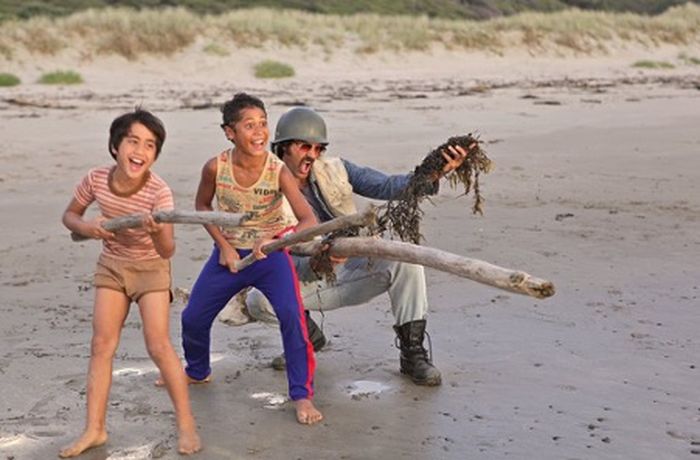Oxbridge on Film – debauchery, decadence and The Riot Club
A second look at 2014′s The Riot Club reveals that profligate reality can be stranger than sordid fiction, writes Charlotte To.
I first watched The Riot Club in 2014, three years before I would submit my application to Cambridge. Six years later, when watching it again, I couldn’t make it past half-way.
With a cast list decorated with the likes of Sam Claflin, Douglas Booth, and Max Irons, my education was not particularly at the forefront of my 15-year-old mind when watching the film. The strange costumes (what I now know to be white tie), the formal dining, and the bizarre traditions merely struck me as dramatic plot devices. Not once did I flinch at the violence. You do not need me to point out the hundreds of films with more insidious and grotesque scenes than that which takes place in The Bull’s Head pub, and I did not think for a minute that people really returned to their rooms completely destroyed in the name of club initiations.
I can’t decide if this was the naivety of a shielded teenage girl, or wilful ignorance. Whatever it was, watching this dramatic portrayal of the Bullingdon Club played no conscious part in my decision to apply to Cambridge. Although I had no access to anyone who could provide legitimate insight into the lived reality of attending Oxford or Cambridge, I didn’t look towards films like The Riot Club to fill in the blanks.
In fact, I didn’t think to think what the ins and outs of everyday life would be like on (what I felt to be) the very slim chance that I might somehow be offered a place. This didn’t occur to me once before the day I arrived in 2018. Instead, I had conjured up my own version of reality; a wholly fictitious world which I wanted to be a part of so badly that it nearly killed me pursuing it. And yet the dream was eroded with each day I spent in Cambridge.
“The fiction which we create is both the greatest motivator to earn the place, and the thing which makes adjusting to the reality so hard.”
For the great number of people with absolutely no idea what they are getting themselves into when they apply to Oxbridge, the fiction which we create is both the greatest motivator to earn the place, and the thing which makes adjusting to the reality so hard. As I became accustomed to this reality, I came back to that film which my 15-year-old self barely gave a second thought to. At the end of my first year I watched it again. When it reached that pub scene, and as the club began to attack the pub owner, I had to turn it off. It wasn’t the violence itself which disturbed me, but the understanding I now had that this did bear a resemblance to reality.
The dinners, the supervisions, and the endless Freshers’ Week question of ‘where did you go to school, then?’ were familiar in a mildly funny and reassuring way. We often look for ourselves, parallels with our own lives, in fiction and take comfort in that familiarity. But there was nothing comforting about recognising the people and the culture of the club in the world around me. I turned it off because, watching it this time around, it was not only familiar but felt completely plausible. This isn’t about the persistence of drinking and dining societies in Oxbridge, but rather the culture which they are inseparable from. This culture is embedded in The Riot Club and it took my own experiences of feeling uncomfortable, misled by my own fabricated notion of what I was applying for, to unlock this part of the film.
This forms a small part of big conversations which we need to have about access, and a recent Varsity article noting the difficulties faced by state-educated applicants paints part of the picture. Another part, however, is the number of state-educated students who arrive at an Oxford or Cambridge very different to the one they had set their sights on.
The Higher Education Statistics Agency found that 1% of Cambridge students drop out of their degree. No data has been published on the proportion of them who were state-educated, but I would be unsurprised if it was high. Even if this data did exist, it could never reveal those who stick it out, but never quite feel part of the world we worked so hard to gain entrance to.
In a way, I wish that I had seen the film for what it was the first time around. Maybe it would have helped to inform my decision to apply. Laura Wade, the playwright of POSH, which The Riot Club is based on, insists that the characters are fictional. Perhaps if those of us who experience this particular brand of imposter syndrome were more vocal and honest about the far-from-fictional persistence of characters and cultures like those in The Riot Club, we could go some way towards dismantling the structures of privilege which underpin them.
 News / CUP announces funding scheme for under-represented academics19 December 2025
News / CUP announces funding scheme for under-represented academics19 December 2025 News / Cambridge welcomes UK rejoining the Erasmus scheme20 December 2025
News / Cambridge welcomes UK rejoining the Erasmus scheme20 December 2025 News / SU reluctantly registers controversial women’s soc18 December 2025
News / SU reluctantly registers controversial women’s soc18 December 2025 Film & TV / Timothée Chalamet and the era-fication of film marketing21 December 2025
Film & TV / Timothée Chalamet and the era-fication of film marketing21 December 2025 News / News in Brief: humanoid chatbots, holiday specials, and harmonious scholarships21 December 2025
News / News in Brief: humanoid chatbots, holiday specials, and harmonious scholarships21 December 2025









